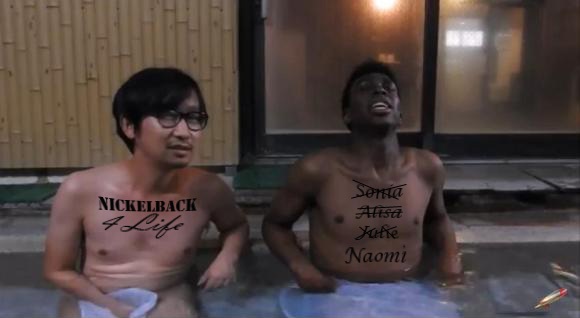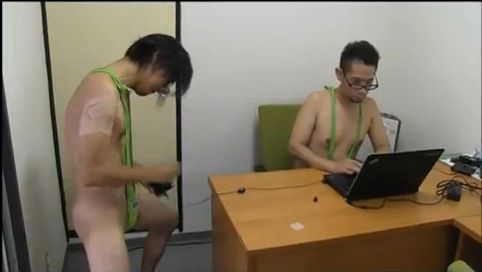
On 23 June the Japan Tourism Agency (JTA) announced that it would be conducting a first-of-its-kind study into public bathing facilities such as onsen (hot springs) and sento (bath houses), and their rules regarding tattoos.
Visitors to Japan are often warned that if they want to visit one of Japan’s hundreds of natural springs or meticulously designed baths they can’t be inked up. But how widespread is this rule in Japan really, and is it doing more harm than good in this day and age? These are the things the JTA hopes to learn more about in the weeks to come.
Although there is no law specifically regarding tattoos in public bathing spaces, there is legislation such as a provision in the Ryokan Gyoho (Hotel Business Law). This states that an establishment can refuse service if they feel that a customer may perform acts which are illegal or against public morals.
Since for a time tattoos in Japan were largely the mark of organized crime members, it would be enough to establish a risk. More importantly, having scary looking yakuza types around was simply bad for business. So, instead of having a “No yaks!” sign and the beat-down that would surely follow, bath proprietors went with an all-encompassing “no tattoo” policy.
Of course they would lose the minority of law-abiding Japanese citizens with tattoos, but that was an acceptable loss for them. Some places such as Hoshino Resort have amended their policy to allow small tattoos which could be covered with sticky patches. Since yakuza tattoos tended to be large and intricate, this would help separate the mildly rebellious from the violently rebellious.
▼ RocketNews24 also has such a policy during Mankini Mondays

However, now with more and more Japanese people getting tatted and with more and more tattooed foreigners visiting, the losses are beginning to add up. So, the JTA hopes to figure something out before the tourism D-Day that is the 2020 Olympics comes. But before they can do that, they have to understand what the situation actually is.
The questionnaire, which was sent to around 3,700 bathhouses across the country, will ask about each establishment’s policy on tattoos, how they notify and enforce it, and to list any problems that occurred because of their policy in the past. With this information in hand, the JTA plans to come up with a policy that will benefit all parties.
We will have to wait and see what information the survey reveals, but for now perhaps we can start our own.
Thanks to my secret cameras in each of your homes, I have it on good authority that many of our readers have tattoos and enjoy Japanese onsens and sentos. If any of you have stories of rejection or acceptance into Japanese baths, let us know below. Then we can see if our results match those of the JTA when they come out.
Source: Yahoo! Japan News, Blogos (Japanese)
Images: RocketNews24

 Japanese government encouraging hot springs to ease tattoo restrictions
Japanese government encouraging hot springs to ease tattoo restrictions Tokyo hot spring allows guests with tattoos to bathe… with some very odd restrictions
Tokyo hot spring allows guests with tattoos to bathe… with some very odd restrictions Onsen in Nagano will now welcome foreigners with tattoos, as long as they patch ’em up
Onsen in Nagano will now welcome foreigners with tattoos, as long as they patch ’em up Big win for tattoo artists: Japan’s Supreme Court rules medical licenses aren’t necessary
Big win for tattoo artists: Japan’s Supreme Court rules medical licenses aren’t necessary Japanese lawyer comments on legality of tattoo ban at hot springs, netizens share thoughts too
Japanese lawyer comments on legality of tattoo ban at hot springs, netizens share thoughts too McDonald’s new Happy Meals offer up cute and practical Sanrio lifestyle goods
McDonald’s new Happy Meals offer up cute and practical Sanrio lifestyle goods All-you-can-drink Starbucks and amazing views part of Tokyo’s new 170 meter-high sky lounge
All-you-can-drink Starbucks and amazing views part of Tokyo’s new 170 meter-high sky lounge More foreign tourists than ever before in history visited Japan last month
More foreign tourists than ever before in history visited Japan last month Is the new Shinkansen Train Desk ticket worth it?
Is the new Shinkansen Train Desk ticket worth it? Beautiful Sailor Moon manhole cover coasters being given out for free by Tokyo tourist center
Beautiful Sailor Moon manhole cover coasters being given out for free by Tokyo tourist center Hamster abandoned at Tokyo ramen restaurant gets new home
Hamster abandoned at Tokyo ramen restaurant gets new home Disney princesses get official manga makeovers for Manga Princess Cafe opening in Tokyo
Disney princesses get official manga makeovers for Manga Princess Cafe opening in Tokyo Mister Donut ready to make hojicha dreams come true in latest collab with Kyoto tea merchant
Mister Donut ready to make hojicha dreams come true in latest collab with Kyoto tea merchant The oldest tunnel in Japan is believed to be haunted, and strange things happen when we go there
The oldest tunnel in Japan is believed to be haunted, and strange things happen when we go there The Top 5 Boys’ Love Manga in English on digital content library MangaPlaza goes beast mode
The Top 5 Boys’ Love Manga in English on digital content library MangaPlaza goes beast mode We try out “Chan Ramen”, an underground type of ramen popular in the ramen community
We try out “Chan Ramen”, an underground type of ramen popular in the ramen community Starbucks reopens at Shibuya Scramble Crossing with new look and design concept
Starbucks reopens at Shibuya Scramble Crossing with new look and design concept Beautiful new Final Fantasy T-shirt collection on the way from Uniqlo【Photos】
Beautiful new Final Fantasy T-shirt collection on the way from Uniqlo【Photos】 Foreign English teachers in Japan pick their favorite Japanese-language phrases【Survey】
Foreign English teachers in Japan pick their favorite Japanese-language phrases【Survey】 There’s a park inside Japan where you can also see Japan inside the park
There’s a park inside Japan where you can also see Japan inside the park Japanese convenience store packs a whole bento into an onigiri rice ball
Japanese convenience store packs a whole bento into an onigiri rice ball Studio Ghibli releases Kiki’s Delivery Service chocolate cake pouches in Japan
Studio Ghibli releases Kiki’s Delivery Service chocolate cake pouches in Japan Japan’s bone-breaking and record-breaking roller coaster is permanently shutting down
Japan’s bone-breaking and record-breaking roller coaster is permanently shutting down New definition of “Japanese whiskey” goes into effect to prevent fakes from fooling overseas buyers
New definition of “Japanese whiskey” goes into effect to prevent fakes from fooling overseas buyers Foreign passenger shoves conductor on one of the last full runs for Japan’s Thunderbird train
Foreign passenger shoves conductor on one of the last full runs for Japan’s Thunderbird train Our Japanese reporter visits Costco in the U.S., finds super American and very Japanese things
Our Japanese reporter visits Costco in the U.S., finds super American and very Japanese things Kyoto bans tourists from geisha alleys in Gion, with fines for those who don’t follow rules
Kyoto bans tourists from geisha alleys in Gion, with fines for those who don’t follow rules Studio Ghibli unveils Mother’s Day gift set that captures the love in My Neighbour Totoro
Studio Ghibli unveils Mother’s Day gift set that captures the love in My Neighbour Totoro Domino’s Japan now sells…pizza ears?
Domino’s Japan now sells…pizza ears? New Japanese KitKat flavour stars Sanrio characters, including Hello Kitty
New Japanese KitKat flavour stars Sanrio characters, including Hello Kitty Sales of Japan’s most convenient train ticket/shopping payment cards suspended indefinitely
Sales of Japan’s most convenient train ticket/shopping payment cards suspended indefinitely Sold-out Studio Ghibli desktop humidifiers are back so Totoro can help you through the dry season
Sold-out Studio Ghibli desktop humidifiers are back so Totoro can help you through the dry season Japanese government to make first change to romanization spelling rules since the 1950s
Japanese government to make first change to romanization spelling rules since the 1950s Ghibli founders Toshio Suzuki and Hayao Miyazaki contribute to Japanese whisky Totoro label design
Ghibli founders Toshio Suzuki and Hayao Miyazaki contribute to Japanese whisky Totoro label design Doraemon found buried at sea as scene from 1993 anime becomes real life【Photos】
Doraemon found buried at sea as scene from 1993 anime becomes real life【Photos】 Tokyo’s most famous Starbucks is closed
Tokyo’s most famous Starbucks is closed One Piece characters’ nationalities revealed, but fans have mixed opinions
One Piece characters’ nationalities revealed, but fans have mixed opinions We asked a Uniqlo employee what four things we should buy and their suggestions didn’t disappoint
We asked a Uniqlo employee what four things we should buy and their suggestions didn’t disappoint Princesses, fruits, and blacksmiths: Study reveals the 30 most unusual family names in Japan
Princesses, fruits, and blacksmiths: Study reveals the 30 most unusual family names in Japan Studio Ghibli’s new desktop Howl’s Moving Castle will take your stationery on an adventure
Studio Ghibli’s new desktop Howl’s Moving Castle will take your stationery on an adventure Japanese Self-Defense Force mulls removing its ban on tattoos
Japanese Self-Defense Force mulls removing its ban on tattoos Solaniwa Onsen: Kansai’s largest hot spring theme park is also one of its most beautiful
Solaniwa Onsen: Kansai’s largest hot spring theme park is also one of its most beautiful Love hot springs and tattoos? You won’t want to miss this onsen paradise near Tokyo!
Love hot springs and tattoos? You won’t want to miss this onsen paradise near Tokyo! Korean tattoo artist’s small, simple, stylish “line tattoos” change our impression of getting inked
Korean tattoo artist’s small, simple, stylish “line tattoos” change our impression of getting inked Soak in a sand bath in Beppu, Japan’s famous onsen region
Soak in a sand bath in Beppu, Japan’s famous onsen region Chef at top Tokyo sushi restaurant wins lawsuit after being fired for maybe having a tattoo
Chef at top Tokyo sushi restaurant wins lawsuit after being fired for maybe having a tattoo Tattooed Japanese woman suing nursing school after being suspended because of her ink
Tattooed Japanese woman suing nursing school after being suspended because of her ink Kewpie dolls found in Asakusa have the face of an angel, the bottom of a brothel owner
Kewpie dolls found in Asakusa have the face of an angel, the bottom of a brothel owner U.S. college student learns the hard way to get your Japanese kanji tattoo checked by an expert
U.S. college student learns the hard way to get your Japanese kanji tattoo checked by an expert Check if you have a soba allergy with these amazing ukiyoe-print temporary tattoos!
Check if you have a soba allergy with these amazing ukiyoe-print temporary tattoos! No digital ink here – Yokohama tattoo parlor churning out amazing anime art
No digital ink here – Yokohama tattoo parlor churning out amazing anime art Check out these amazing Ghibli-inspired tattoos
Check out these amazing Ghibli-inspired tattoos Kyoto City official arrested for bribery with old-timey gold coin
Kyoto City official arrested for bribery with old-timey gold coin Family cheated out of 54 million yen by man impersonating Japanese rock star for three years
Family cheated out of 54 million yen by man impersonating Japanese rock star for three years Is there a correlation between sex and World Cup success?
Is there a correlation between sex and World Cup success? Things go from scary to sweet when Japanese traveler meets tattooed man on bus overseas【Manga】
Things go from scary to sweet when Japanese traveler meets tattooed man on bus overseas【Manga】
Leave a Reply